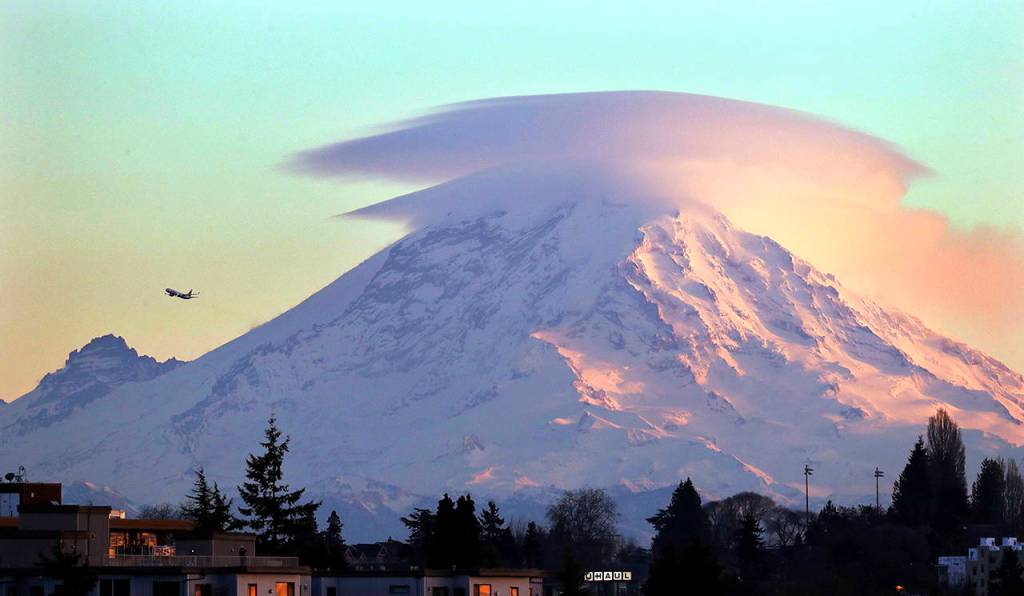Editorial: Congress nears breath of fresh air on park funding
Published 1:30 am Friday, June 12, 2020


By The Herald Editorial Board
As America’s national parks and other public lands continue a slow-rolling reopening, even as the social-distancing fight against the coronavirus pandemic drags on, the U.S. Senate is poised to deliver good — and long awaited — news, not just for those who enjoy hiking, camping, fishing, hunting and other outdoor recreation, but to the communities and livelihoods those pursuits support.
Early next week, the Senate is expected to take a final vote on the Great American Outdoors Act, which would provide about $9.5 billion in funding over the next five years to address most of an estimated $12 billion maintenance backlog that has been building for years at parks and preserves in the National Park Service and for other federal lands. Importantly, approval of the act will also assure full and permanent funding for the Land and Water Conservation Fund, which just a few years ago was threatened with its end.
Renewed funding for both would work hand in hand. The LWCF has for more than 50 years provided matching grant funds toward the purchase and development of property for public land purposes, particularly for national, state and local parks. At the same time, Congress can now address past procrastination to fund maintenance, restoration and rehabilitation at national parks, national forests and other public lands, work that has languished even as those parks have drawn record numbers of visitors in recent years. In 2012, nearly 283 million people visited national parks. By 2019, that number had increased to more than 327 million visitors; twice, in 2016 and 2017, total visitation topped 330 million.
It’s been a long fight in both House and Senate to win reauthorization of the LWCF and funding for park maintenance, led in recent years by Washington state’s Sens. Maria Cantwell and Patty Murray and U.S. Reps. Suzan DelBene and Rick Larsen, representing the 1st and 2nd Districts.
Cantwell, a sponsor of the Senate legislation, speaking by phone from Washington, D.C., this week, called the expected vote welcome news.
“America needs a break right now,” she said, noting the increase in access to public lands and parks that the legislation can provide.
The Land and Water Conservation Fund is of particular interest to residents of Everett and Snohomish County, as it was created by a bill originally sponsored by Everett’s Sen. Henry M. “Scoop” Jackson in 1964.
“The fact that this is something that Scoop created as America was starting to urbanize, there are so many iconic places throughout every state, but the last 10 years have been a fight to get it permanently funded and get money to flow to states,” Cantwell said.
After decades of regular reauthorization, opposition from Republicans opposed to public-lands legislation led to the program going unfunded briefly in 2015. It was reauthorized later that year for three years and won permanent reauthorization in 2019. But throughout its more than 50 years, the LWCF has typically not received the full appropriation that Jackson’s original legislation intended, often allocating only a fraction of the full $900 million allowed, with the rest being diverted to other spending.
This bill will now mandate the full allocation each year.
Importantly, we’re not talking taxpayer dollars here. All LWCF funding comes from royalties paid by the oil and gas industry for off-shore drilling leases. The same goes for the national park maintenance funding, which expands the revenue source to all energy royalties, including solar and wind, from leases of federal land. Essentially, the nation’s natural resources are used to support American’s enjoyment of its natural resources.
Since its inception, the LWCF has delivered more than $714 million to park projects in Washington state, much of it matched by local and state funding for local, state and national parks, providing protection of forests, water and air quality, wildlife habitat and recreational access.
In Snohomish County, the LWCF has provided more than $5.1 million for 45 projects. Ten projects in Island County have received $1.1 million from the program, including Ebey’s Landing National Historical Reserve.
Among pending projects, funding is included for a memorial to honor the 43 county residents who died in the March 22, 2014, Oso landslide, as well as its first responders, survivors and those who aided the Stillaguamish Valley’s recovery.
Among Washington state’s national parks that would receive maintenance funding: $262 million is allocated for Olympic National Park, $186 million for Mount Rainier National Park and $18 million for North Cascades National Park.
Funding for these parks and public lands are necessary, especially as the nation rebuilds communities and creates jobs following the near-shutdown of local economies during the pandemic. Beyond the boost from spending itself, the improvements will support jobs in the recreational industry and the communities that serve as gateways to the parks.
Nationally, according to the National Park Service, in 2019, 327 million park visitors spent an estimated $21 billion in local gateway regions while visiting public lands across the country, supporting 341,000 jobs, and $41.7 billion in economic output for the national economy. At the state level, Washington had nearly 9 million national park visitors who spent an estimated $535 million, supported more than 6,000 jobs and added $710 million to the state’s economy.
Just before a 92-1 vote on the creation of the LWCF on Aug. 12, 1964, Sen. Jackson addressed his Senate colleagues: “I would like to remind you that it is mostly to the open areas that 90 percent of all Americans go each year, seeking refreshment of body and spirit. These are the places they go to hunt, fish, camp, picnic, swim, for boating or driving for pleasure, or perhaps simply for relaxation or solitude.”
With passage by the Senate next week and adoption by the House to follow, Congress can complete Jackson’s work to ensure all Americans can easily find that refreshment of body and spirit.




